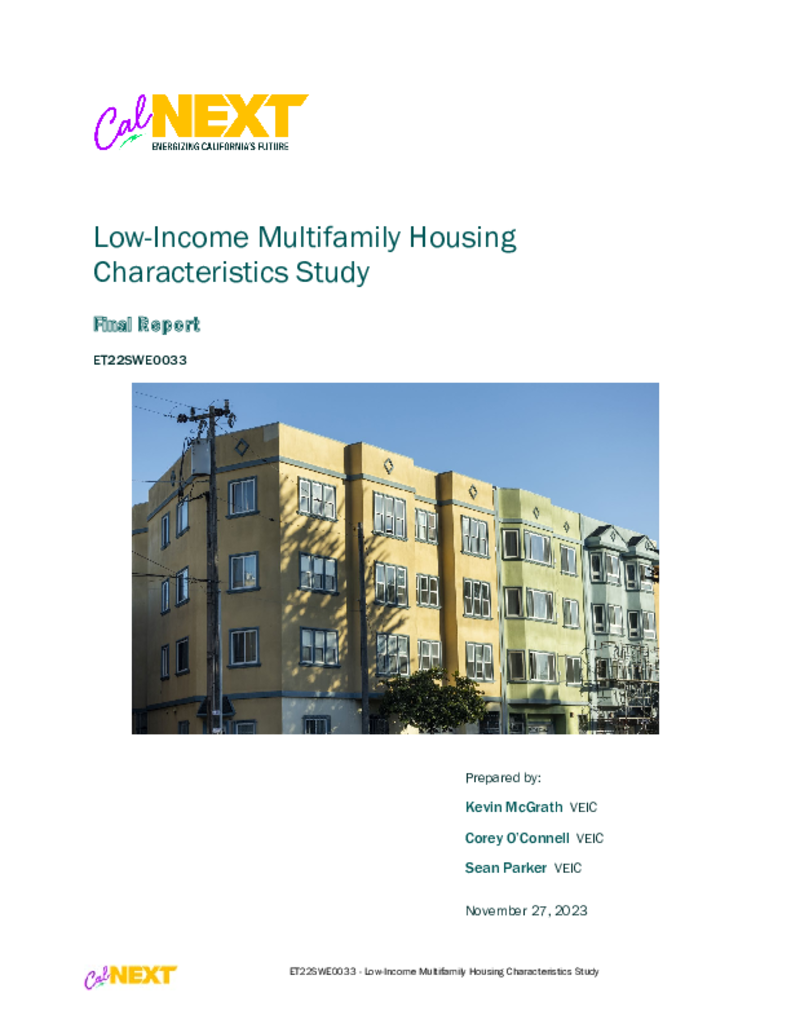ET22SWE0033 - Low-Income Multifamily Housing Characteristics Study
With nearly a third of California’s low-income households living in large (5+ unit) multifamily housing, electrifying and deploying advanced electric technologies to this portion of the housing stock is critical to reaching the state’s goals for equitable climate action. Formulating policies and programs tailored to this segment’s specific housing characteristics is critical to achieving speed and scale in building electrification, yet there is a gap in statewide data on the characteristics of low-income multifamily housing. This project proposes to conduct a Low-Income Multifamily Housing Characteristics Study by analyzing Census data (e.g., American Housing Survey (AHS), American Community Survey (ACS)) and other public data sources (e.g., Low-Income Energy Affordability (LEAD) Tool, Residential Energy Consumption Survey (RECS)), gathering input from existing electrification and solar programs, and targeted direct data collection to fill this gap. In addition to more general market characterization, the study will address factors known to be key barriers to electrification in multifamily housing, such as the need for electrical system upgrades (e.g., wiring, circuit panels, service lines), space constraints, and existing water distribution system issues. The study will address both subsidized and “naturally occurring” affordable housing.
Based on analysis of a 2021 American Community Survey, nearly a third of California’s low-or-moderate-income (LMI) households live in multifamily buildings – over 90 percent of these households are renters and nearly three-fourths are housing cost burdened (i.e., they spend over 30 percent of their income on housing costs including energy bills). Electrifying and deploying advanced electric technologies to this housing stock without negatively impacting housing and energy costs to tenants is critical to reaching the state’s equitable climate action goals. Policies and programs tailored to this segment’s specific housing characteristics are crucial for achieving fast and scalable building electrification. However, there is insufficient statewide data on the characteristics of low-income multifamily housing. This study will help fill the data gap with analysis of public datasets, input gathered from existing electrification and solar programs, and direct data collection to answer questions that cannot be addressed with currently available data. In addition to a providing general market characterization, this study addresses factors known to be key barriers to electrification in multifamily housing, such as the need for electrical system upgrades (e.g., wiring, circuit panels, service lines), space constraints, and existing water distribution system issues. The study examines the entire low-income multifamily housing market, including subsidized multifamily properties, naturally occurring affordable housing, and market rate multifamily properties with low- income residents.

